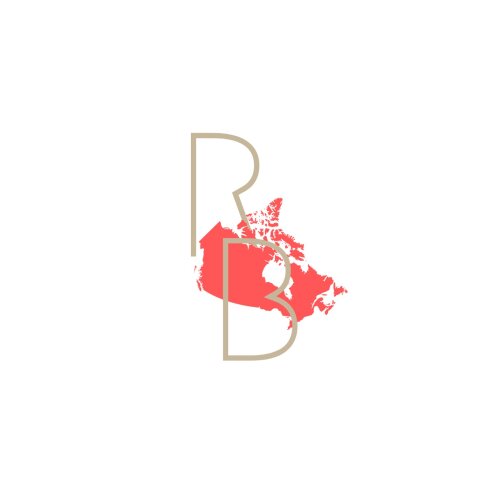Best Dependent Visa Lawyers in Casablanca
Share your needs with us, get contacted by law firms.
Free. Takes 2 min.
List of the best lawyers in Casablanca, Morocco
About Dependent Visa Law in Casablanca, Morocco:
Dependent visas in Casablanca, Morocco allow spouses, children, and other dependents of foreign nationals to live in the country under certain conditions. These visas are granted based on the status of the primary visa holder and are subject to specific requirements set by Moroccan immigration laws.
Why You May Need a Lawyer:
It is advisable to seek legal advice in situations where you are unsure about the eligibility criteria for a dependent visa, need help with the application process, or encounter issues with your visa status. A lawyer can provide guidance, ensure that your rights are protected, and help navigate the legal complexities surrounding dependent visas in Casablanca, Morocco.
Local Laws Overview:
Local laws in Casablanca, Morocco require dependent visa applicants to provide proof of their relationship with the primary visa holder, demonstrate financial stability, and adhere to certain residency requirements. It is important to comply with these laws to avoid any legal complications during the visa application process.
Frequently Asked Questions:
1. What documents are required for a dependent visa application?
Dependent visa applicants typically need to submit a valid passport, proof of relationship with the primary visa holder, financial documents, and a completed application form.
2. Can dependent visa holders work in Casablanca, Morocco?
Dependent visa holders are generally not allowed to work in Casablanca, Morocco unless they obtain the necessary work permits.
3. How long does it take to process a dependent visa application?
The processing time for dependent visa applications in Casablanca, Morocco can vary but typically ranges from a few weeks to several months.
4. Can dependent visa holders study in Casablanca, Morocco?
Dependent visa holders are usually allowed to study in Casablanca, Morocco without obtaining additional permits.
5. What are the common reasons for dependent visa application rejections?
Common reasons for dependent visa application rejections in Casablanca, Morocco include insufficient documentation, failure to meet financial requirements, and discrepancies in the application information.
6. Can dependent visa holders travel outside Casablanca, Morocco?
Dependent visa holders can typically travel outside Casablanca, Morocco but may need to obtain a re-entry permit to return to the country.
7. What are the restrictions on dependent visa holders in Casablanca, Morocco?
Dependent visa holders in Casablanca, Morocco are generally prohibited from engaging in paid employment and must comply with the conditions set by their visa category.
8. Can dependent visa holders apply for permanent residency in Casablanca, Morocco?
Dependent visa holders may be eligible to apply for permanent residency in Casablanca, Morocco after meeting certain residency and other criteria set by Moroccan immigration laws.
9. How can a lawyer help with dependent visa issues?
A lawyer can assist with dependent visa applications, appeals for rejected applications, renewals, and resolving legal issues related to dependent visas in Casablanca, Morocco.
10. What are the penalties for violating dependent visa laws in Casablanca, Morocco?
Violating dependent visa laws in Casablanca, Morocco can result in fines, deportation, and other legal consequences. It is essential to comply with the local laws to avoid such penalties.
Additional Resources:
For further information on dependent visas in Casablanca, Morocco, you can contact the Moroccan Ministry of Foreign Affairs, local immigration authorities, or seek guidance from legal experts specializing in immigration law.
Next Steps:
If you require legal assistance with dependent visas in Casablanca, Morocco, it is recommended to consult with a qualified lawyer who can provide tailored advice and representation to address your specific needs.
Lawzana helps you find the best lawyers and law firms in Casablanca through a curated and pre-screened list of qualified legal professionals. Our platform offers rankings and detailed profiles of attorneys and law firms, allowing you to compare based on practice areas, including Dependent Visa, experience, and client feedback.
Each profile includes a description of the firm's areas of practice, client reviews, team members and partners, year of establishment, spoken languages, office locations, contact information, social media presence, and any published articles or resources. Most firms on our platform speak English and are experienced in both local and international legal matters.
Get a quote from top-rated law firms in Casablanca, Morocco — quickly, securely, and without unnecessary hassle.
Disclaimer:
The information provided on this page is for general informational purposes only and does not constitute legal advice. While we strive to ensure the accuracy and relevance of the content, legal information may change over time, and interpretations of the law can vary. You should always consult with a qualified legal professional for advice specific to your situation.
We disclaim all liability for actions taken or not taken based on the content of this page. If you believe any information is incorrect or outdated, please contact us, and we will review and update it where appropriate.










